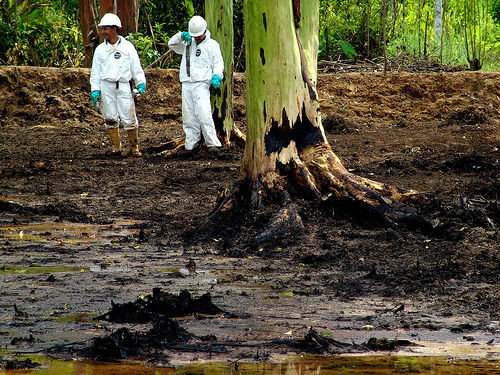 An Ecuadorian court handed down a landmark verdict in an 18-year case against international oil-giant Chevron on February 14.
An Ecuadorian court handed down a landmark verdict in an 18-year case against international oil-giant Chevron on February 14.
The company was fined US$8.6 billion for polluting the Amazonian basin, and $900 million in costs.
The case — perhaps the biggest environmental case in history — was filed on behalf of around 30,000 peasants, farmers, and indigenous Ecuadorians who have suffered the ill-effects of Chevron’s toxic legacy.
At the heart of the case is the nearly 20 billion gallons of polluted water, oil and toxic waste released between 1972 and 1990 by oil company Texaco (now a part of Chevron) into the ecosystem in eastern Ecuador.
The pollution has caused thousands of deaths, cancers, birth defects and incalculable environmental damage — poisoning animals, plants and the water table — as well as huge economic loss.
So deadly has the impact been that it has been described as an “Amazonian Chernobyl”. In some affected areas, oil still oozes out of the polluted ground.

